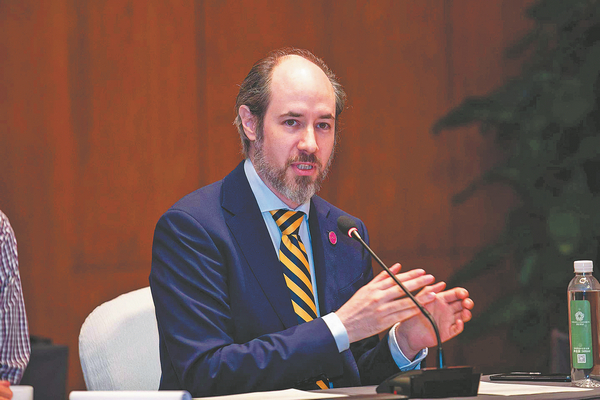

"This ever-worsening pattern has disrupted the harmonious relationship between humans and nature and brought about the climate crisis that confronts us now. We need to take Lao Tzu's teaching of nonaction, nature, emptiness and peace much more seriously," he continued.
A notable saying by Lao Tzu goes: "Man follows the Earth, the Earth follows the universe, the universe follows the Tao, and the Tao follows only itself."
"All things in the world are connected, so when nature gets sick, we humans get sick as well. What we need is neither competition, nor passing of judgment, but to learn from each other. We need to regain a healthy balance and peace for all things," Kim added.
The wisdom of Lao Tzu has also deeply influenced Misha Tadd, associate professor and director of the College of Philosophy Global Laozegetics Research Center at Nankai University.
As a reader of ancient Chinese philosophy since the age of 14, Tadd has been devoted to the research of Tao Te Ching for about three decades, and still finds it captivating and worthy of study.
"One of the main characteristics of the Tao Te Ching is that it criticizes the ordinary, or mainstream, direction. That is, the all-out pursuit of fighting. Instead, it is a non-competition based philosophy, and it also emphasizes the principle of conquering firmness with softness. Thus, such wisdom may provide some reference of significance to solve some contradictions between people or between countries," said Tadd.
Over the past three decades, Tadd has also been translating and collecting different versions of the Tao Te Ching, and found that the classic is popular around the world. Last year, he published a catalog of global versions of the Tao Te Ching, including 2,052 translations in 97 languages.